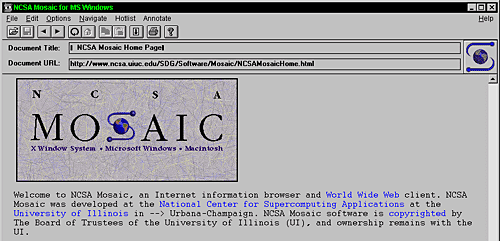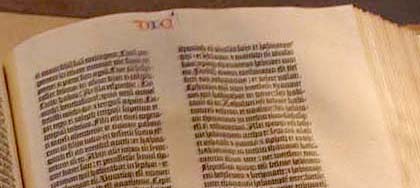Castro: ![]() 5th edition, Intro, pp. 13-24 or
5th edition, Intro, pp. 13-24 or ![]() 6th edition, pp. 13-26.
6th edition, pp. 13-26.
1957, in response to Sputnik, the Advanced Research Projects Agency is formed.
1961, Leonhard Kleinrock writes the first paper on "packet switched networks".
1962, Paul Baran, of the RAND Corporation (a government agency), was commissioned by the U.S. Air Force to do a study on how it could maintain its command and control over its missiles and bombers, after a nuclear attack. This was to be a military research network that could survive a nuclear strike, decentralized so that if any locations (cities) in the U.S. were attacked, the military could still have control of nuclear arms for a counter-attack.
Baran's finished document described several ways to accomplish this. His final proposal was a packet switched network--sort of like sending numbered postcards via the U.S. mail:
"Packet switching is the breaking down of data into datagrams or packets that are labeled to indicate the origin and the destination of the information and the forwarding of these packets from one computer to another computer until the information arrives at its final destination computer. This was crucial to the realization of a computer network. If packets are lost at any given point, the message can be resent by the originator."

The computer scientists involved with ARPANET claim that, when finally built, it was motivated more by the desire to let researchers share a precious commodity (access to a computer, any computer) rather than exclusively military goals.
 1993 Mosaic
--the first graphical interface to the www.
1993 Mosaic
--the first graphical interface to the www. 1990 Tim Berners-Lee at CERN (high-energy physics lab) in Geneva implements a hypertext system to provide efficient information access to the members of the international high-energy physics community.
1993 Marc Andreeson and others at NCSA/University of Illinois create Mosaic for X-windows--the first graphical interface to the www. (Marc goes on to found, with a few others, Netscape).
1999 More than half of all U.S. households own a PC according to market research (Nando Times, May, 1999).
2001 The term "dot com" seems to have entered US vocabulary at large, as a term for an Internet-oriented business (see "crash of the..."). The era of Internet appliances--e.g. the i-pot.
2004 Google IPO--value of the search engine company's stock is about the same as GM.
The W3C (World Wide Web Consortium) founded in 1994.
 HTML is 'open-source' -- not owned by any company.
HTML is 'open-source' -- not owned by any company.Unlike the specification for what a Microsoft Word file must look like, HTML is not "owned" by anyone. It is non-proprietary, or open-source: A movement that has been compared explicitly to the 16th century Reformation.
However, despite the W3C, browser producers (like Mozilla and Microsoft) often come up with their own HTML extensions that they build into their browsers, and then hope the W3C will bless. Some of these have been (Netscape's table extensions), some have not (Netscape's tag).